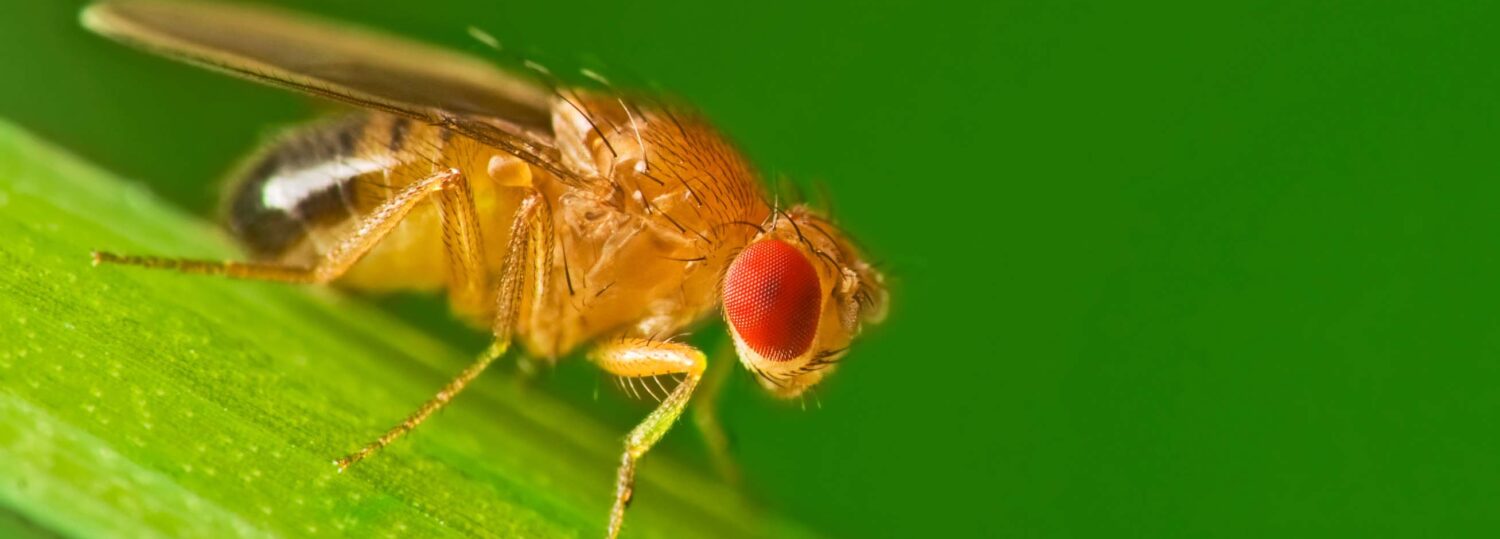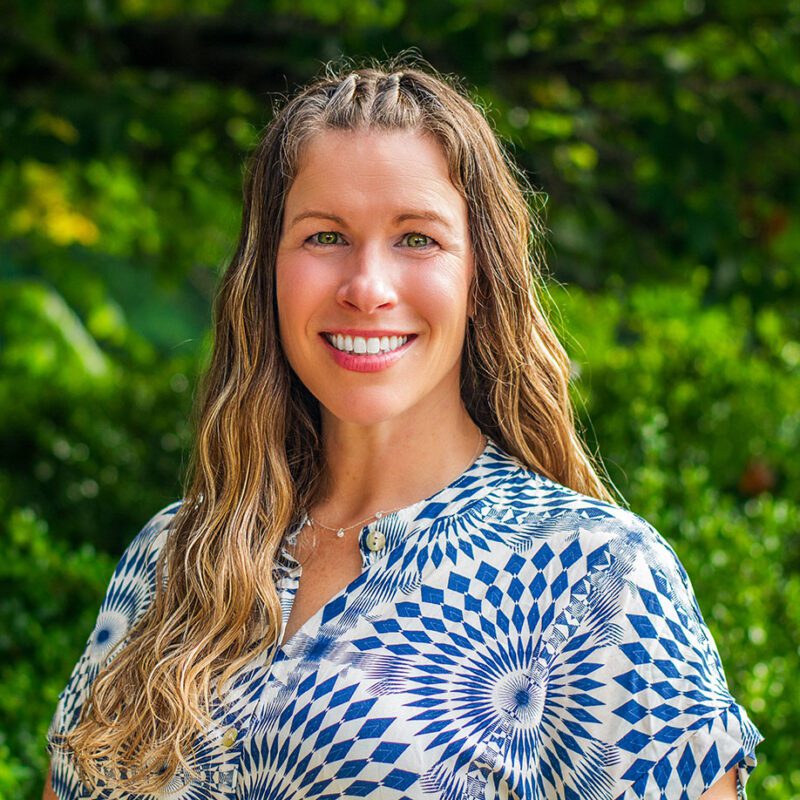CHAPEL HILL, N.C.⸺Over six weeks, students in Christine Sudzina Schut’s classroom at Culbreth Middle School with Chapel Hill-Carrboro City Schools observed the life cycle of fruit flies through stereoscopes. The seventh-graders learned the research lab technique of inducing a chill coma in fruit flies for observation. They recorded their observations in data tables and discussed how environmental factors influence organism development and propagation.
By the end of the inquiry-based learning unit, the students understood how living organisms survive, reproduce and carry out basic life functions. Beyond meeting North Carolina science curriculum standards, the students developed a sense of pride in their work. This pride led them to invite friends from other classes to view their experiments, a moment of fulfillment for Sudzina.
Nurturing Critical Thinking Through Inquiry-Based Learning
She remarked, “Hearing students discuss their class activities and wanting to share them with others was truly gratifying.”
Reflecting on the experience, one student noted, “I enjoyed engaging in something that felt like a genuine research study, something I wouldn’t typically have the opportunity to do.” This sentiment of accomplishment and curiosity inspires Sudzina to offer more research-like experiences to her students in the future, like her current project “Plant the Moon Challenge” global competition.
The idea for the inquiry-based learning unit on fruit flies stemmed from her summer internship at the UNC School of Medicine Department of Cell Biology and Physiology as part of her Kenan fellowship. For three weeks, Sudzina worked with researchers in the lab of Toshihide Hige, Ph.D., learning about fruit flies, their behaviors, genome and their significance in genetic and neuron research.
“I had so much fun being back in a research lab and learning new lab techniques. I would not have attempted nor created the lessons my 7th-grade students did if I had not had the opportunity to do it myself in the lab,” Sudzina reflected.
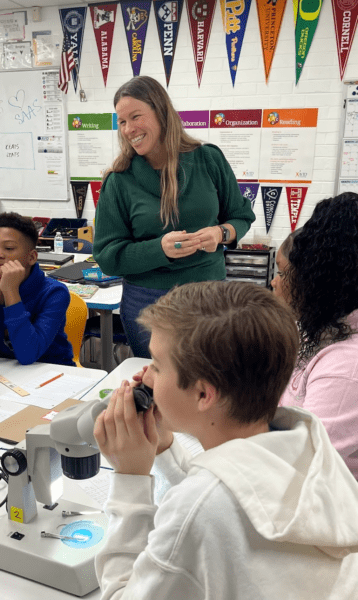
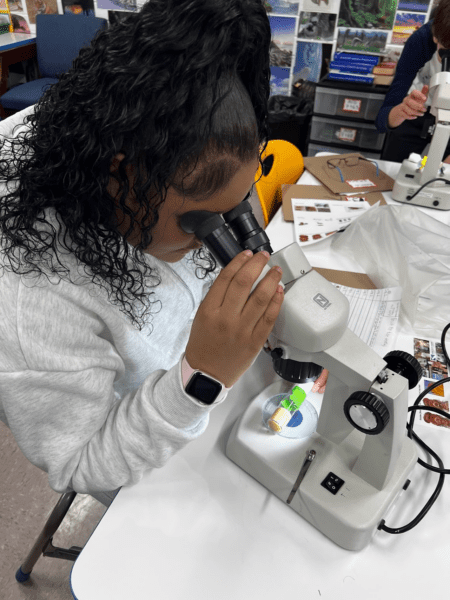
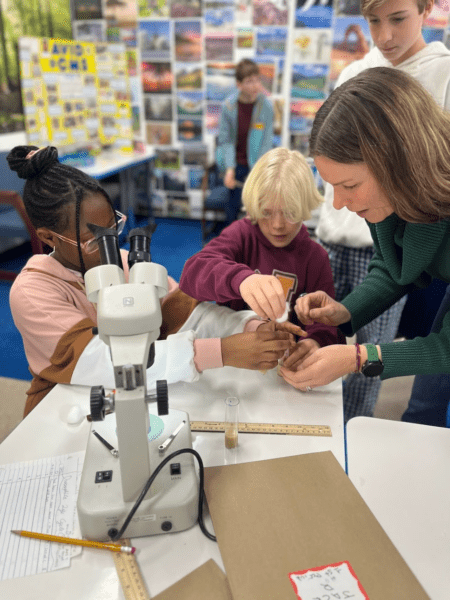
Bridging Classroom and Research Lab Techniques
During her internship, she worked closely with Drew Davidson, Ph.D. who showed her how to identify different phenotypes, combine mating pairs and understand the life cycle and care of drosophila, the scientific term for fruit flies. When Sudzina designed the fly fruit lesson for her seventh-grade students, Davidson provided supplies for nine types of Drosophila for her students to observe.
He also supplied food and vials for the experiment and visited her classroom to answer students’ questions. “Students asked so many fantastic questions that let me know they were really observing and questioning throughout the lab. Additionally, he discussed his research and how it connects to what my students learned in class,” Sudzina recalled.
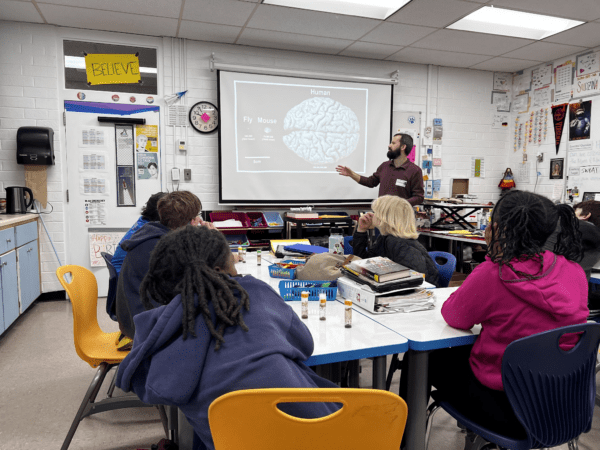
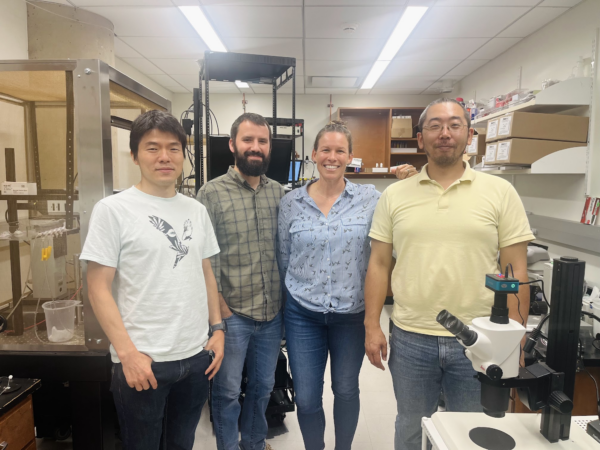
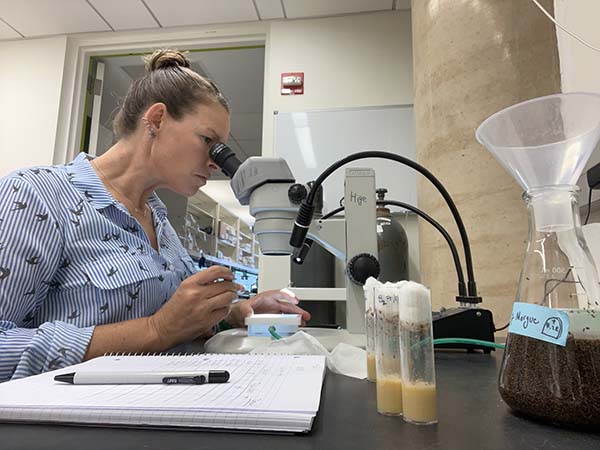
Building a Professional Learning Community
With two decades of teaching experience, including international stints in Germany and the Netherlands, Sudzina’s journey has been defined by continuous growth. Her involvement in the Kenan fellowship enabled her to craft her first inquiry-based learning unit and provided a supportive community of educators whose various perspectives fueled her professional development.
Reflecting on her journey, Sudzina expressed gratitude for the enriching experiences and collaborative spirit she has gained as a Kenan Fellow. “I have had the opportunity to collaborate and learn from so many incredible educators from across NC. Educators who I probably would have never met had it not been for my fellowship,” she shared. “The richness of their voices, experiences, and perspectives has helped me grow as an educator, a leader, and a person. I feel so fortunate and thankful to be a part of such a passionate and talented group.”
